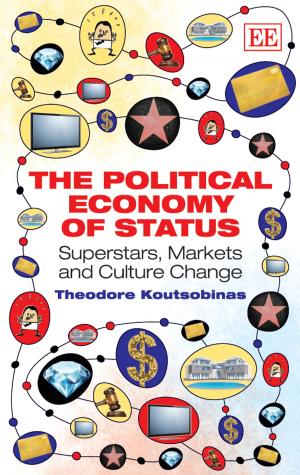Competing Values Leadership
Second Edition
Business & Finance, Management & Leadership, Leadership, Management| Author: | Cameron, K.S., Quinn, R.E., DeGraff, J. | ISBN: | 9781783477111 |
| Publisher: | Edward Elgar Publishing | Publication: | December 15, 2009 |
| Imprint: | Language: | English |
| Author: | Cameron, K.S., Quinn, R.E., DeGraff, J. |
| ISBN: | 9781783477111 |
| Publisher: | Edward Elgar Publishing |
| Publication: | December 15, 2009 |
| Imprint: | |
| Language: | English |
Praise for the first edition:‘Both the framework and the book make notable contributions to both theory and practice. The book will be of value to scholars and organization leaders in understanding the concepts of value creation and organizational effectiveness. It will be an aid to consultants in conceptualizing strategies for organizations and in counselling leaders on how to operationalize the concepts in their organizations.’ S.R. Mohnot, Global Business Review‘This is a very readable and excellently presented volume. It will interest anyone concerned with organizational effectiveness and the competing values model.’ Economic Outlook and Business Review‘I recommend this book to anyone wishing to understand and practice leadership. Leadership is often treated in mutually-exclusive categories, such as Theory X vs. Theory Y, managers vs. leaders, transactional vs. transformative, initiation vs. consideration, etc. The Competing Values Framework presented in this book transcends these dualities. It features eight competing but complementary values that are critical for managing today’s complex and pluralistic organizations. The framework emphasizes the need for balance among the eight leadership roles, and an appreciation of the context, timing, and contingencies when the leadership roles facilitate and inhibit collective endeavors. I have followed the development and testing of the Competing Values Framework over the years. It makes important contributions to both theory and practice. It stimulates positive learning outcomes for students and managers.’ Andrew H. Van de Ven, University of Minnesota, USThis book serves as the key source for understanding the Competing Values Framework, one of the most widely used and highly cited frameworks in the world. The authors, who have been at the foundation of developing, applying and studying this framework for over three decades, explain how it helps foster successful leadership, improve organizational effectiveness and promote value creation. It would be unusual for a framework as powerful and predictive as the Competing Values Framework to remain unchallenged and absent of criticism. In addition to updating the examples and references, this second edition provides a new chapter motivated by recent criticisms of the framework. In this chapter, the authors address these concerns and provide empirical evidence of the continuing effectiveness of the model.This book is widely applicable to a number of fields, including financial strategy, culture change, human resource management, leadership roles, and organizational change. Both academics and business leaders will find it to be an illuminating and useful reference.
Praise for the first edition:‘Both the framework and the book make notable contributions to both theory and practice. The book will be of value to scholars and organization leaders in understanding the concepts of value creation and organizational effectiveness. It will be an aid to consultants in conceptualizing strategies for organizations and in counselling leaders on how to operationalize the concepts in their organizations.’ S.R. Mohnot, Global Business Review‘This is a very readable and excellently presented volume. It will interest anyone concerned with organizational effectiveness and the competing values model.’ Economic Outlook and Business Review‘I recommend this book to anyone wishing to understand and practice leadership. Leadership is often treated in mutually-exclusive categories, such as Theory X vs. Theory Y, managers vs. leaders, transactional vs. transformative, initiation vs. consideration, etc. The Competing Values Framework presented in this book transcends these dualities. It features eight competing but complementary values that are critical for managing today’s complex and pluralistic organizations. The framework emphasizes the need for balance among the eight leadership roles, and an appreciation of the context, timing, and contingencies when the leadership roles facilitate and inhibit collective endeavors. I have followed the development and testing of the Competing Values Framework over the years. It makes important contributions to both theory and practice. It stimulates positive learning outcomes for students and managers.’ Andrew H. Van de Ven, University of Minnesota, USThis book serves as the key source for understanding the Competing Values Framework, one of the most widely used and highly cited frameworks in the world. The authors, who have been at the foundation of developing, applying and studying this framework for over three decades, explain how it helps foster successful leadership, improve organizational effectiveness and promote value creation. It would be unusual for a framework as powerful and predictive as the Competing Values Framework to remain unchallenged and absent of criticism. In addition to updating the examples and references, this second edition provides a new chapter motivated by recent criticisms of the framework. In this chapter, the authors address these concerns and provide empirical evidence of the continuing effectiveness of the model.This book is widely applicable to a number of fields, including financial strategy, culture change, human resource management, leadership roles, and organizational change. Both academics and business leaders will find it to be an illuminating and useful reference.















